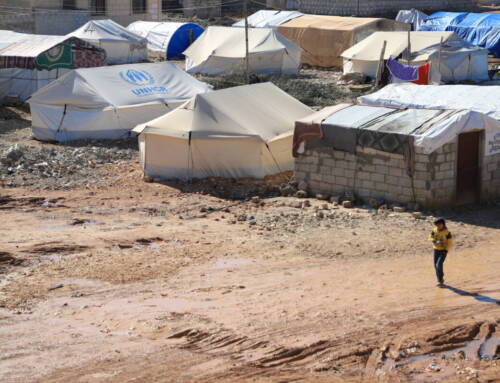Michel Kilo: ‘We do not want to repeat the Egyptian experience’
September 30, 2013 Syrian writer and human-rights activist Michel Kilo, […]
30 September 2013
September 30, 2013
Syrian writer and human-rights activist Michel Kilo, the current head of the Democratic List in the Syrian National Coalition, is in Istanbul this week to formalize his newly formed political faction called the Syrian Democratic Union, which he says is inclusive for all Syrians, particularly women and young people. Its goals, Kilo tells Nuha Shabaan, are “democracy, growth and social justice.”
Kilo, who grew up in Latakia, says his inclusive approach was influenced early on by his father, a police officer. “How can you identify as a Christian only in a historical environment that gave you culture, language, civilization and is part of your identity?” his father would say.
Before the revolution, Kilo was one of Syria’s most well-known dissidents. As a member of the Syrian Communist Party, he was imprisoned by the Assad regime from 2007 through 2009. As peaceful protests turned toward revolution, Kilo worked inside Syria to organize disparate rebel factions. Today, he is a columnist for the London-based newspaper Al Sharq Al Awsat, residing in Paris with his family. In forming the Syrian Democratic Union, Kilo is reiterating his calls for a democratic, prosperous and egalitarian Syria.
Q: You have participated in establishing a number of unions and most have not succeeded. Why do you think this union will succeed?
A: The new group’s name, the Syrian Democratic Union, includes most segments of Syrian society. We know that achieving democracy is not an easy matter. We must first rid ourselves of tyranny, and then move to democracy. But democracy cannot be built on coups, it’s a system that needs constant development, unlike other political systems which seem fully complete.
After five decades of political life absent from Syrian society, with no freedom of expression, at the beginning of the Syrian Revolution in March 2011 the forces for democracy in Syria united their efforts to gather under a single system. As a group of young men and women, we have formed this union adopting civil and democrat values, in order to have a real influence on the ground, in all Syrian governorates and foreign nations.
Q: What is the thing you are betting on to make this incomplete democracy work?
A: This union is not a union of tribes or sects, and it doesn’t mean absolute rule of the majority. We witnessed the Egyptian experience, and how it failed, and we do not want to repeat the Egyptian experience. There must be compatibility between sects, tribes and ethnicities. There is huge confusion between social realities and democratic political speech. It is different, as Syria is a mosaic, an integrated mix of all, and we cannot exclude anyone from this mosaic. The success of the union depends on the existence of suitable ground, and we created the conditions to ensure this exists on the ground. That’s my bet.
The most important conditions are giving the Syrian people freedom of choice, and creating whole institutions on the ground. [This will] allow the Syrian people to live humanely with religious and intellectual freedom, without any dictates or pressure.
We will elect the Secretary General of the Union and an 11-member executive office as well as a General Secretariat composed of 40 members, as well as an oversight commission made up of 15 members, who will be active on the ground.
To be honest, these elections will not be fully democratic, because we are still in the building stage. This will be a training for us in democracy. It will be transparent and I hope it has complete success.
Q: Are you a candidate in the elections?
A: Yes, I didn’t want to nominate myself, but everyone called me for nomination. This is a large burden and responsibility.
Q: How will this new union win the trust of the Syrian people inside Syria and the trust of the Western world?
A: Political speech is one of the most important parts of democracy. We work to gain the trust of the Syrian street and the West, as well as the trust of decision makers, through our way of implementing the terms on which our union and its organization structure are built.
*Photo courtesy of the SNC.








